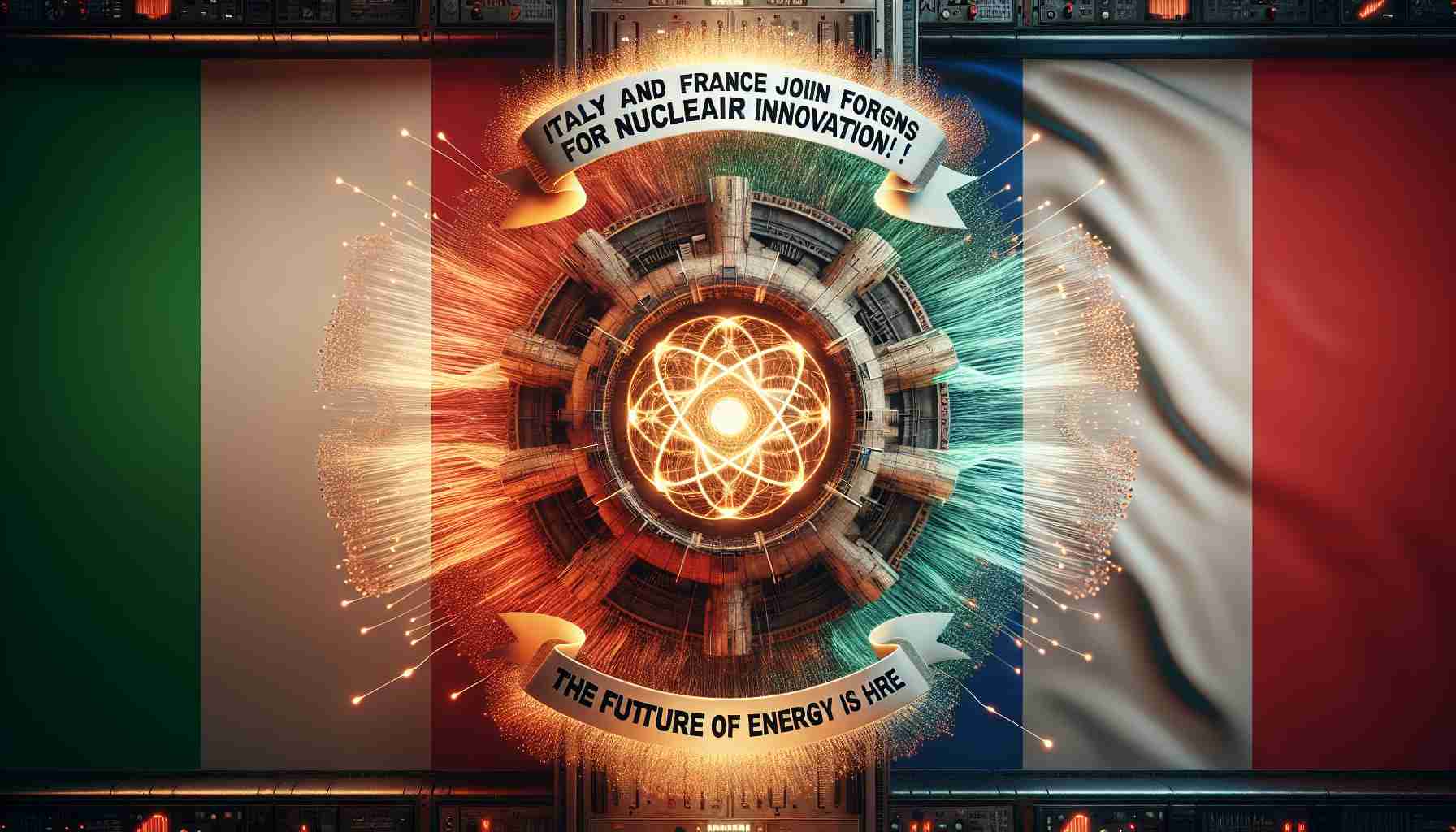In a bold move towards the future of energy, France’s EDF, its Italian subsidiary Edison, and Italy’s leading nuclear research entity ENEA have forged a groundbreaking partnership focused on small modular reactors (SMRs). This collaboration marks a significant stride in leveraging advanced technologies for industrial applications.
The agreement centers on various cutting-edge areas. Among these are the analysis of crucial thermo-hydraulic systems and the enhancement of passive safety mechanisms. The partnership aims to explore innovative technologies, streamline system operations, and harness both electricity and heat for industrial cogeneration. Furthermore, the initiative involves extensive training and knowledge exchange among researchers and doctoral candidates, fostering a new generation of experts.
Edison’s executive vice president emphasized that this alliance boosts Italy’s position in the European nuclear landscape, directing efforts towards the development of innovative nuclear technologies. ENEA, representing Italy, is poised to lead in this cutting-edge field, reinforcing its commitment to the sustainable economic development of the country.
Meanwhile, EDF’s chief technical officer remarked on the collaboration as a vital strategy in overcoming challenges associated with deploying SMRs across Europe. This partnership not only highlights the combined expertise of these organizations but also showcases a commitment to achieving carbon neutrality.
After decades of limited nuclear activity, Italy appears to be turning a page, with renewed discussions about integrating nuclear power into its energy future.
Small Modular Reactors: A Catalyst for Change
The collaboration between France’s EDF, Edison, and ENEA on small modular reactors (SMRs) heralds a transformative era for energy policy and nuclear technology in Europe. This partnership not only enhances Italy’s position in the nuclear sector but also reshapes the dynamics of energy reliance across the continent. As nations grapple with climate change and energy security, the implications could be profound, paving the way for Europe to reduce its dependence on fossil fuels while boosting its energy resilience.
The societal impact of adopting SMRs is significant. These reactors promise to generate electricity with lower emissions, presenting a tangible solution for countries aiming to meet ambitious carbon neutrality targets. As various industries pivot towards sustainable practices, this initiative could serve as a linchpin for economic growth, driving innovation and employment in high-tech sectors.
Moreover, the environmental effects cannot be understated. By facilitating the deployment of cleaner nuclear energy, Italy and its partners could minimize the adverse impacts associated with traditional power generation, including air pollution and greenhouse gas emissions.
In terms of future trends, this partnership might encourage other nations to revisit their own nuclear capabilities, accelerating a global shift towards safer, more efficient energy systems. As trust in nuclear technology continues to grow, particularly in light of new safety features and modular design, we may witness a resurgence in nuclear energy as a cornerstone of sustainable development. This collaboration signifies a promising chapter not merely for Italy, but for the broader energy landscape in Europe and beyond.
France and Italy Team Up for a Nuclear Future: Exploring Small Modular Reactors
In a strategic alliance that signals a transformative shift in the energy sector, France’s Électricité de France (EDF), alongside its Italian subsidiary Edison, and Italy’s prominent nuclear research organization ENEA, have come together to explore the promising potential of small modular reactors (SMRs). This partnership is not just a technical collaboration; it marks a pivotal moment in revitalizing nuclear energy within Italy and across Europe.
Overview of the Partnership
The collaboration aims to innovate and streamline several critical aspects of small modular reactor technology. Key focus areas include:
– Thermo-hydraulic System Analysis: Understanding the thermal and hydraulic parameters is fundamental to the efficient operation of SMRs.
– Passive Safety Mechanisms: Enhancing safety protocols ensures that SMRs operate securely, even under unforeseen circumstances. These systems rely on natural physical principles rather than active controls or external power, thereby improving safety standards.
– Cogeneration of Electricity and Heat: The partnership emphasizes industrial applications where both electricity and heat can be harnessed simultaneously, optimizing energy use in sectors such as manufacturing and large-scale production.
Training and Knowledge Exchange
The initiative will also prioritize extensive training programs for researchers and doctoral candidates. By investing in education and skills development, the partnership aims to cultivate a new generation of experts who will drive innovation in nuclear technology.
Boosting Italy’s Nuclear Landscape
Edison’s executive vice president noted the strategic significance of this alliance for Italy, positioning the country as a leader in Europe’s evolving nuclear sector. ENEA is set to take a leading role in the research and development of advanced nuclear technologies, reinforcing its dedication to enhancing Italy’s sustainable economic growth.
Overcoming Challenges in Deployment
EDP’s chief technical officer has emphasized that this partnership is crucial for addressing the hurdles in deploying SMRs across Europe. The collaboration demonstrates the combined strengths and capabilities of EDF, Edison, and ENEA, reinforcing a shared commitment to achieving ambitious carbon neutrality goals.
Revitalizing Nuclear Energy in Italy
After many years of limited engagement with nuclear energy, Italy is embarking on a new chapter. With growing interest and discussions circling around the necessity of nuclear power in the context of sustainable energy, this partnership could catalyze a significant revival of nuclear initiatives.
Use Cases and Market Potential
SMRs present a myriad of use cases beyond typical energy generation. They can be integrated into existing industrial systems, used for remote power supply, and even for desalination projects in water-scarce regions. Their versatility makes them an attractive option in the face of global energy demands.
Conclusion
The alliance between EDF, Edison, and ENEA symbolizes a transformative approach to nuclear energy. By focusing on advanced small modular reactors, this partnership not only aims to revitalize Italy’s position in the nuclear landscape but also contributes to a sustainable energy future for Europe. As countries navigate the complexities of energy transitions, such collaborations could become the cornerstone of modern energy solutions.
For more insights on nuclear technology advancements, visit EDF and Edison.
The source of the article is from the blog reporterosdelsur.com.mx



